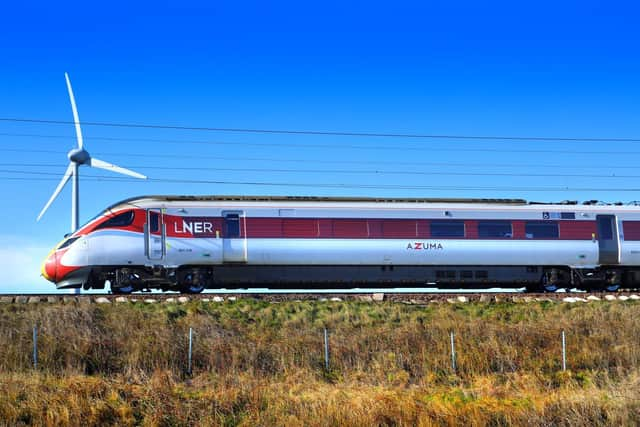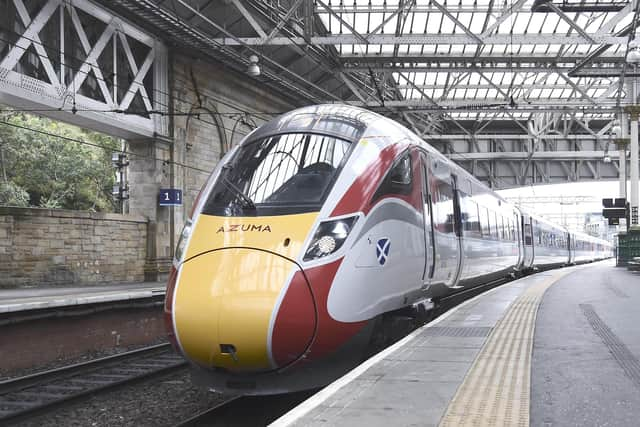Exclusive:Edinburgh-London rail journeys to be cut to 4 hours – LNER
Many rail journeys between Edinburgh and London are expected to be cut to around four hours from next December in a long-awaited move that will accelerate the shift from plane to train, London North Eastern Railway (LNER) has told Scotland on Sunday.
A final decision to speed up the east coast main line is awaited from the UK Government, which would reduce some trips between Waverley and Kings Cross by nearly half an hour.
Advertisement
Hide AdAdvertisement
Hide AdIt would come as the final part of plans announced more than a decade ago that have involved a new fleet of faster-accelerating Azuma trains and major upgrades of the 400-mile route.


The four-hour journeys were originally scheduled to start in 2019 but were delayed by the work being completed and then the Covid pandemic.
LNER said the faster journeys coupled with increased public awareness of the need to cut emissions could see trains take 60 per cent or more of the rail-air market between the capital cities.
If approved, one of the two trains an hour between Edinburgh and London would take 4 hours 5 minutes northbound and 4 hours 8 minutes southbound, stopping only in Newcastle and York.


LNER said that compared to the current average of 4 hours 30 minutes, with some trains taking 4 hours 18 minutes and the southbound 5.40am Flying Scotsman completing the journey in 4 hours, stopping only in Newcastle.
The new limited-stop services will be possible with the introduction of a new hourly Newcastle-London service to serve other stations – which LNER said would provide extra seats for Edinburgh-London passengers and more lower fares.
Managing director David Horne told Scotland on Sunday: "What we're hoping to do, come December, is launch the new east coast timetable, which will give you, on Edinburgh-London, an hourly service taking just over four hours, with two stops en route.
"It's not been announced because there is a final decision to be taken by the Department for Transport (DfT).
Advertisement
Hide AdAdvertisement
Hide Ad"There's still some work taking place by Network Rail and the [rail] industry to make sure the precise timings of freight trains can still be accommodated.
"When we launch the service, there is going to be more capacity on Edinburgh-London services… generated by transferring intermediate journeys off the Edinburgh trains.
"If you’re in Edinburgh, you’re now going to have an hourly fast service which will be quicker, or at least as quick, door-to-door as if you had been travelling by air."
Mr Horne said it meant LNER could be bolder than the previous target of winning 50 per cent of the rail-air market on the route. He said: "Because of the progress we have made coming out of the pandemic, and knowing that sustainability is a factor that is driving demand to trains, I think we can be more bullish than that and say we ought to be able to get 55-60 per cent or even more onto rail.”
Robert Samson, senior stakeholder manager at passenger watchdog Transport Focus, said: “The proposed changes to east coast main line timetable would mean passengers travelling from Edinburgh to London benefit from faster journey times.”
The DfT said the timetable plans were “for LNER and not the department at the moment”.
Comments
Want to join the conversation? Please or to comment on this article.